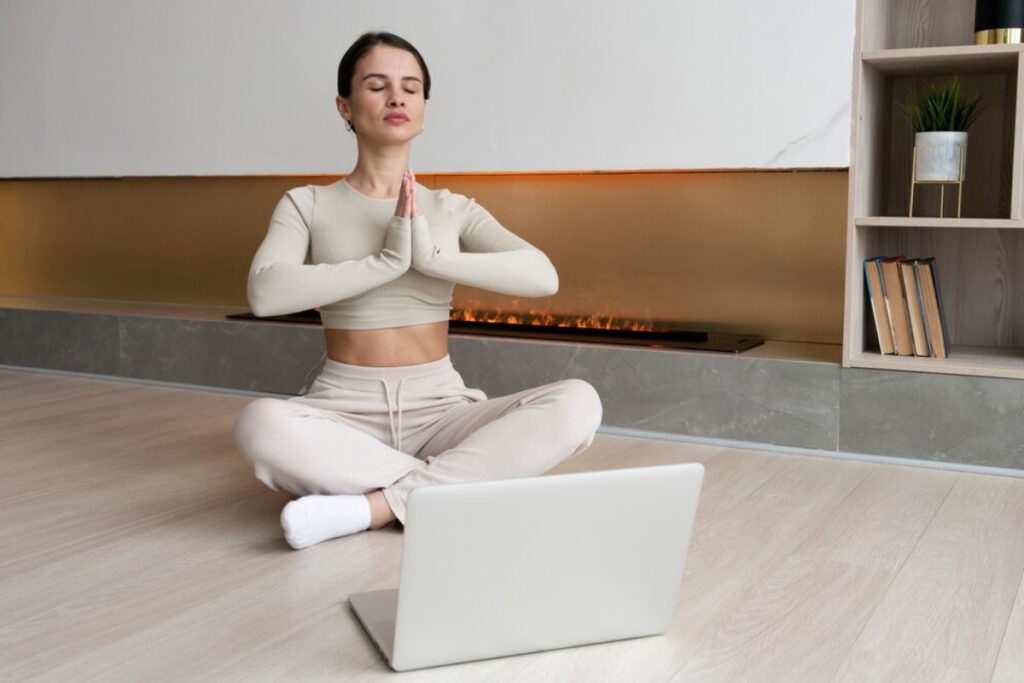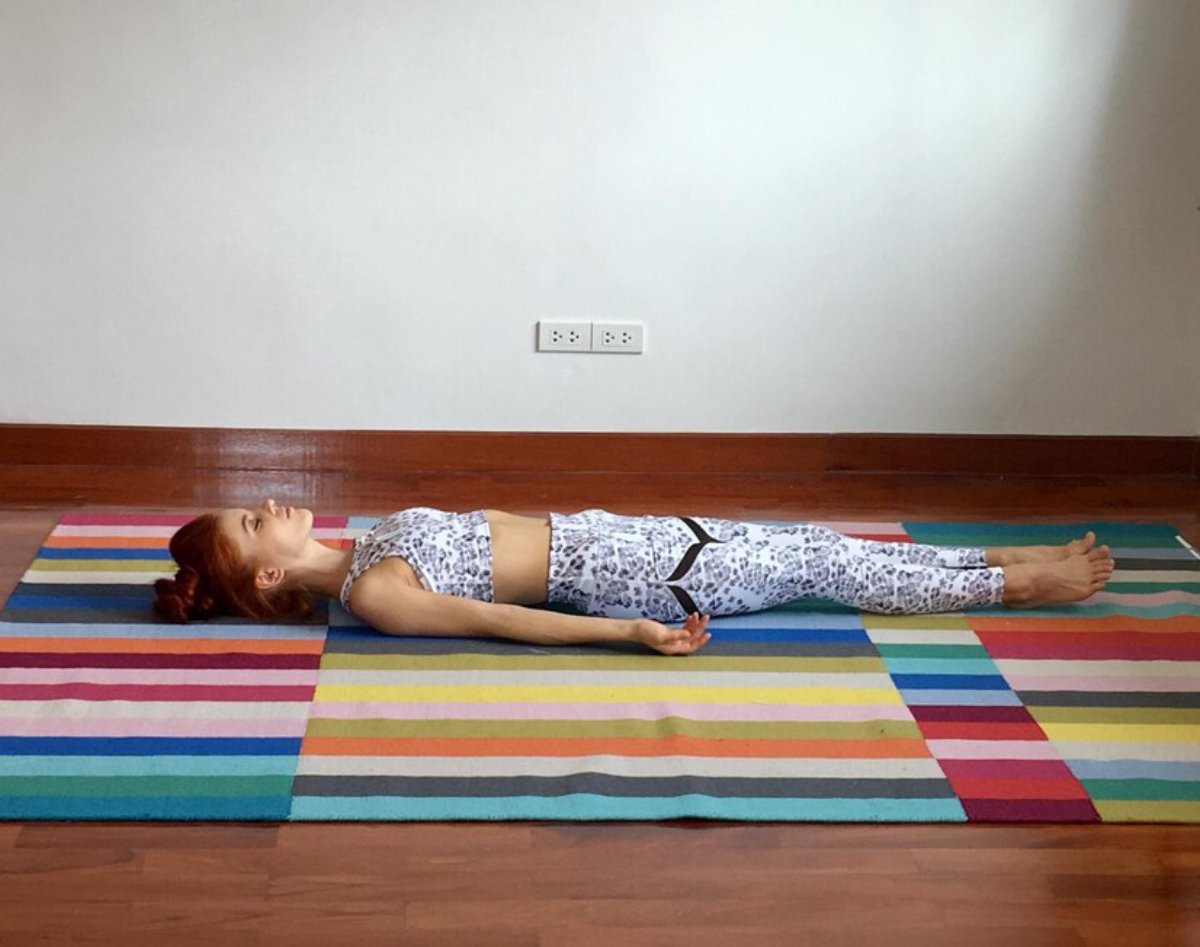The Yoga Blogs

Yoga Techniques to Enhance Study Concentration
Have you ever tried to study but found yourself checking your phone instead? You’re not alone. In today’s digital world, staying focused feels challenging. The pressure to perform, endless notifications, and constant comparisons can drain your mental clarity. But what if there’s a natural way to train your brain to stay calm and focused? That’s where yoga comes in.
Yoga is more than just flexibility or complex poses. It combines breathwork, movement, and mindfulness to connect body and mind. For students facing deadlines and stress, yoga offers tools for better focus, reduced anxiety, and improved performance.
In this post, you’ll learn simple yoga techniques designed to enhance your concentration. Whether you’re preparing for finals or managing a busy schedule, these practices can help you bring your best self to your studies.
How Yoga Impacts the Student Brain
Boosts Blood Flow to the Brain
Doing yoga postures increases blood circulation, especially to the brain. This boost in oxygen flow helps with memory and concentration.
Regulates Stress Hormones
Stress can kill concentration. Yoga lowers cortisol, helping you stay calm under pressure. It activates the parasympathetic nervous system, your body’s natural “rest and digest” mode.
Promotes Mindfulness
Mindfulness is a key part of yoga. It trains your mind to stay present. This awareness clears mental clutter and helps you focus on reading, solving problems, or writing.
Sources:
- Harvard Health Publishing (“Yoga for Anxiety and Depression”)
- National Institute of Health (NIH) studies on yoga and cognitive function

Best Yoga Techniques for Enhancing Study Concentration
1. Bhramari Pranayama (Bee Breath)
This calming technique is perfect before studying.
How to practice:
- Sit comfortably, eyes closed.
- Place your index fingers on your ears.
- Inhale deeply.
- Exhale with a humming sound, like a bee.
- Repeat for 5–7 rounds.
Benefits:
- Calms the nervous system
- Reduces anxiety
- Grounds the mind for better focus
2. Balasana (Child’s Pose)
This resting pose helps ease mental fatigue.
How to practice:
- Kneel on the floor, big toes touching.
- Sit back on your heels and fold forward.
- Stretch your arms in front of or alongside your body.
- Breathe deeply and hold for 1–3 minutes.
Benefits:
- Soothes the brain
- Relieves fatigue
- Provides calm before or after studying
3. Tadasana (Mountain Pose) with Breath Awareness
Though simple, Tadasana helps cultivate mindfulness.
How to practice:
- Stand tall with feet together.
- Arms at your sides, fingers relaxed.
- Close your eyes and focus on your breath.
- Inhale and exhale slowly for 10 deep breaths.
Benefits:
- Improves posture
- Encourages present-moment awareness
- Centres the mind
4. Padmasana (Lotus Pose) with Jnana Mudra
This classic pose supports deep concentration.
How to practice:
- Sit cross-legged or in Lotus Pose.
- Rest hands on knees, palms up, with thumb and index finger touching.
- Keep your spine straight.
- Breathe naturally for 5–10 minutes.
Benefits:
- Enhances clarity and focus
- Supports longer study sessions
- Encourages self-awareness

5. Yoga Nidra (Yogic Sleep)
Great for recharging your brain after intense study.
How to practice:
- Lie on your back in Savasana.
- Follow a guided Yoga Nidra session online.
- Focus on relaxing each part of your body.
Benefits:
- Deep relaxation in 20 minutes
- Improves memory retention
- Supports mental recovery
Creating a Study-Yoga Routine
Start Your Day Right
Begin with 10 minutes of gentle yoga and breathwork when you wake up. It energises your mind and body without feeling overwhelming.
Suggested flow:
- Tadasana with breathwork (2 mins)
- Cat-Cow stretch (3 mins)
- Child’s Pose (2 mins)
- Seated meditation (3 mins)
Midday Reset
Feeling sluggish in the afternoon? Take a 10-minute yoga break instead of scrolling on your phone.
Try:
- Bee Breath
- Standing forward fold
- Easy seated twist
Pre-Study Ritual
Before studying, spend 5 minutes in Lotus Pose with mindful breathing. This signals your brain to focus.
Additional Mindfulness Techniques to Support Academic Focus
Body Scan Meditation
Spend 5–10 minutes scanning your body from head to toe. Notice and release areas of tension. This grounds you and shifts your focus inward.
Pomodoro + Yoga
Combine the Pomodoro Technique (25-minute study blocks with 5-minute breaks) with yoga. Use breaks for simple stretches or shoulder rolls.
Mindful Journaling
After yoga or study sessions, jot down your feelings. Reflecting helps you notice patterns and build mindfulness habits.
Real-Life Impact: A Student’s Story
“During finals, I started each morning with 10 minutes of yoga and used Bee Breath before studying. It helped me feel calmer, and I remembered more during revision. For someone with constant brain fog, this was a game-changer.” — Sophie, University Student.
Stories like Sophie’s show that yoga isn’t just a trend. It has real effects on mental performance and well-being.
Building Consistency with Your Yoga Practice
Keep It Simple
You don’t need a yoga mat or long sessions. Even 5–10 minutes can make a difference if done regularly.
Pair It With Existing Habits
Link your yoga practice to something you do every day, like brushing your teeth or enjoying your first cup of tea.
Track Your Progress
Use a journal or app to monitor your daily yoga practice and its effects on your mood and concentration.
Let Your Breath Lead Your Brain
Yoga isn’t a magic solution for academic stress, but it’s a powerful tool to manage it. By adding simple techniques to your routine, you give your brain the clarity, calm, and focus it needs to thrive.
Whether you’re studying for finals or wanting to learn better, yoga helps you show up for yourself.
Start today. Roll out a mat, take a deep breath, and find the focus you’ve been missing. What about you? Have you tried yoga to support your studies? Share your experiences in the comments or pass this on to a fellow student who might benefit from it.









